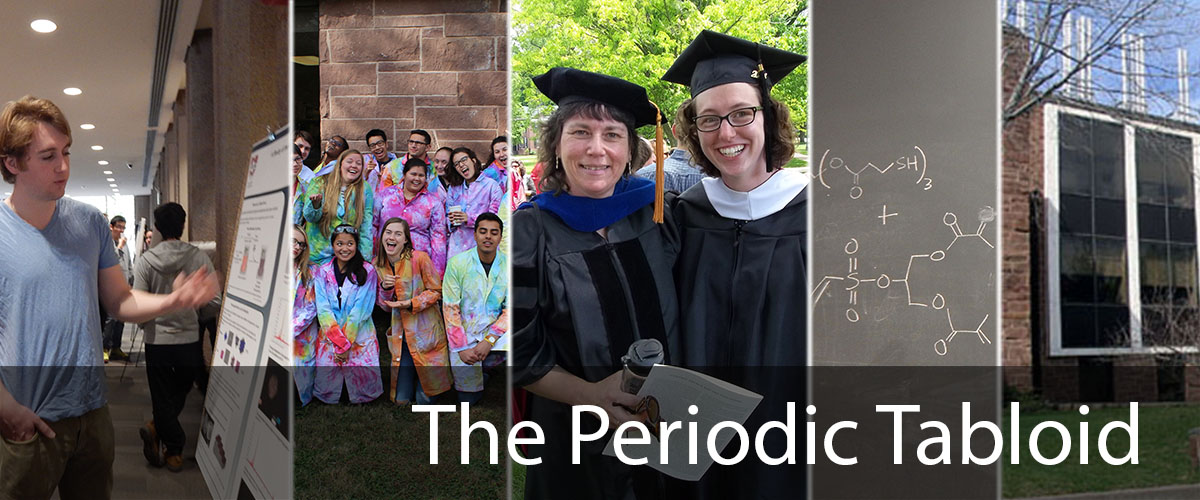
The Chemistry Department is proud to announce the recipients of the 2022 Annual Chemistry Department Awards:
ACS Undergraduate Award in Analytical Chemistry: Sally Tepper
Awarded for excellence in analytical chemistry
ACS Undergraduate Award in Inorganic Chemistry: Anna Friedman
To recognize achievement in inorganic chemistry and to encourage further study in the field
ACS Undergraduate Award in Organic Chemistry: Annika Velez
To a student who has displayed a significant aptitude for organic chemistry
ACS Undergraduate Award in Physical Chemistry: Alex Seys
To recognize achievement in physical chemistry and to encourage further study in the field
ACS Connecticut Valley Section Award: Sophie Wazlowski
For outstanding achievement by a graduating chemistry major
American Institute for Chemists Award: Mohammed Ullah
For outstanding achievement by a graduating chemistry major
Bradley Prize: Dylan Judd & Annika Velez
To the senior or junior who excels in chemistry and particularly in special original work
Silverman Prize: Corin Grady
Awarded to a member of the junior or senior class for excellence in chemistry
Peirce Prize: Caroline Pitton
Awarded for excellence in biology
CRC Award (General Chemistry): Othmane El Houssi
For the outstanding first-year student in Principles of Chemistry
CRC Award (Organic Chemistry): Katherine Fhu
For the outstanding first-year student in Organic Chemistry
Hawk Prize: Nadiya Jaunbocus & Mia Kim
To the students who have done the most effective work in biochemistry
Martius Yellow Award: Emmet Sherman & Nabiha Syed
Awarded for excellence in Integrated Chemistry Laboratory
The Wallace C. Pringle Prize for Research in Chemistry: Sterre Hesseling
Awarded to a student for excellence in research
Peterson Fellowship: Bakar Hassan & Jozafina Milicaj
For graduate study in biochemistry
Tishler Prize: Josh Dudley
Awarded to the best graduate teaching assistant in chemistry



 Graduates toss their caps into the air at the 188th Commencement
Graduates toss their caps into the air at the 188th Commencement